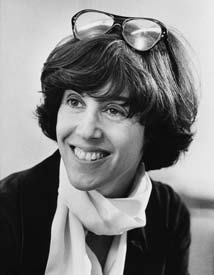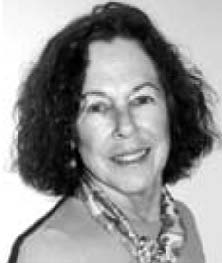Between the Lines : “ Be the heroine of your life, not the victim”
So said Nora Ephron, and if Nora Ephron said it, it’s good enough for me.
Nora Ephron passed away in June, and I join the ranks of her abject mourners. She was probably best known for her screenwriting and filmmaking, memorable classics like “Sleepless in Seattle,” “When Harry Met Sally,” and most recently, “Julie and Julia,” but I was hooked a decade before the first of these when I read “Heartburn,” the thinly-fictionalized, making-key-lime-pie-out-of-bitter-limes story, complete with recipes, of her marriage to Watergate reporter Carl Bernstein.
Her two essay collections, “I Feel Bad About My Neck” and “I Remember Nothing,” published in 2006 and 2010 respectively, sealed the pact. Surely, I thought, this woman knows me and my contemporaries better than we know ourselves. She’s the chronicler of our lives, helping us to look aging in the eye and laugh at it.
I reread both collections in the days following her death, and they were as fresh and funny, intelligent and insightful as when I first read them. This time I was particularly struck by her keen awareness that, all kidding aside folks, the end is near, but you may as well have some fun with it because what else can you do? And in acknowledging that the grim reaper could be just around any corner, she provided scads of copy for her eulogies.
In her essay, “On Maintenance,” she starts off talking about hair and the crushing amount of work it requires. She says, “Sometimes I think that not having to worry about your hair anymore is the secret upside of death.”
A reflective list of “What I Wish I’d Known” includes such gems as “The empty nest is underrated,” “You can order more than one dessert,” and “When your children are teenagers it’s important to have a dog so that someone in the house is happy to see you.” And the one I wish I’d known and heeded: “Write everything down.”
In a more solemn vein, “Considering the Alternative” probes the hard truth: “It’s sad to be over sixty. The long shadows are everywhere—friends dying and battling illness. There are dreams that are never quite going to come true, ambitions that will never be realized.” But, she says, “consider the alternative.” She lists “What I Won’t Miss”— dry skin, funerals, mammograms, dead flowers, and the sound of the vacuum cleaner—and “What I Will Miss,” starting with her husband and sons and going on to include spring and fall, walks in the park, reading in bed, taking a bath, waffles and the concept of waffles, butter, and laughs.
Much wit and wisdom about being old is in “The O Word,” which she wrote at 69, just two years before her death. “People who run four miles a day and eat only nuts and berries drop dead. People who drink a quart of whiskey and smoke two packs of cigarettes a day drop dead. You are suddenly in a lottery, the ultimate game of chance, and someday your luck will run out.” Her point, and this I think is the message of both of these books, perhaps all of her work: “If this is one of the last days of my life, am I doing exactly what I want to be doing?”
Nora Ephron’s life wasn’t always easy; there were failures, mistakes and tragedies. And now her luck has run out. But she will live on as an inspiration for many of us because, I believe, she spent much of her life doing exactly what she wanted to be doing. And as a result, she found personal happiness and fulfillment and brought joy to a lot of people.
I like to think of her loved ones eating finger sandwiches from that place on Lexington and drinking champagne at her funeral as she requested: “It’s so festive,” she said. But most of all, I like to think of her as never having another bad hair day.
Category: Life Style









